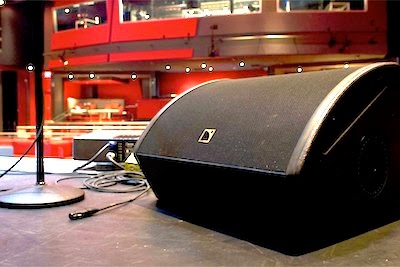
The
Philadelphia Orchestra is one of the powerhouse orchestras on the planet, being labeled as one of the "big 5" (the others are the
New York Philharmonic, Boston Symphony Orchestra, Chicago Symphony Orchestra, and
Cleveland Orchestra). For 44 years,
Eugene Ormandy was the music director and conductor of the Philadelphia Orchestra, collecting 3 gold records and 2 Grammy awards along the way.
He was also quite a character, and for years his remarks were collected by members of the orchestra. To be fair, Ormandy was Hungarian, so English was his second language, but some of his comments still make you laugh. You don't have to be into classic music to get a kick out of these.
"Congratulations to each and every one of you for the concert last night in New York and vice versa."
"Who is sitting in that empty chair?"
"I'm conducting slowly because I don't know the tempo."
"I conduct faster so you can see my beat."
"I cannot give it to you, so try to watch me."
"I was trying to help you, so I was beating wrong."
"I am thinking it right but beating it wrong."
"I can conduct better than I count."
"I guess you thought I was conducting, but I wasn't."
"I purposefully didn't do anything, and you were all behind."
"Why do you always insist on playing while I'm trying to conduct?"
"Even when you are not playing you are holding me back."
"Don't ever follow me, because I am difficult."
"It is not as difficult as I thought it was, but it is harder than it is."
"The notes are right, but if I listened they would be wrong."
"I wrote it the right way, so it was copied the wrong way right. I mean the right way wrong."
"At every concert I've sensed a certain insecurity about the tempo. It's clearly marked 80...uh, 69."
"It is not together, but the ensemble is perfect."
"Someone came too sooner."
"Start beforty-two."
"Start three bars before something."
"Start at B. Yes. No. Yes. No."
"Did you play? It sounded very good."
"Intonation is important, especially when it is cold."
"Beauty is less important than quality."
"If you don't have it in your part, leave it out, because there is enough missing already."
"Percussion a little louder." ["We don't have any."]
"That's right, play it louder."
"More basses, because you are so far away."
"I need one more bass less."
"There are no woodwinds at number 6." [The woodwinds say they are at number 15.]
"I know. That is why."
(To the tubist) "Long note? Yes. Make it seem short."
"Brass, stay down all summer."
"Don't play louder, just give it more."
"Accelerando means in tempo. Don't rush."
"I don't want to repeat this a hundred times. When you see crescendo it means p."
"The tempo remains pp."
"It's difficult to remember when you haven't played it before."
"We can't hear the balance yet because the soloist is still on the airplane."
"Please follow me because I have to follow him and he isn't here."
"Without him here, it is impossible to know how fast he will play it, approximately."
"With us tonight is William Warfield, who is with us tonight. He is a wonderful man, and so is his wife."
"Bizet was a very young man when he composed this symphony, so play it soft."
Mahler wrote it as the third movement of his Fourth Symphony. I mean the fourth movement of his
First Symphony. We play it third. The trumpet solo will be played by our solo trumpet player. It's named "Blumine,"which has something to do with flowers."
"That's the way Stravinsky was. Bup, Bup, Bup, Bup. The poor guy's dead now. Play it legato."
"Serkin was so sick he almost died for three days."
"It's all very well to have principles, but when it comes to money you have to be flexible."
"Thank you for your cooperation and vice versa."
"I mean what I meant."
"I never say what I mean, but I always manage to say something similar."
"Let me explain what I do here. I don't want to confuse you any more than absolutely necessary."
"I don't mean to make you nervous, but unfortunately I have to."
"Relax. Don't be nervous. My god, it's the Philadelphia Orchestra."
----------------------------------








